
The Doors is the debut studio album by American rock band the Doors, released on January 4, 1967, by Elektra Records. It was recorded in August 1966 at Sunset Sound Recorders, Hollywood, California, under the production of Paul A. Rothchild. The album features the extended version of the band's breakthrough single "Light My Fire" and the lengthy closer "The End" with its Oedipal spoken word section. Various publications, including BBC and Rolling Stone, have ranked The Doors as one of the greatest debut albums of all time.

The Moody Blues were an English rock band formed in Birmingham in May 1964. The band initially consisted of drummer Graeme Edge, guitarist/vocalist Denny Laine, keyboardist/vocalist Mike Pinder, multi-instrumentalist/vocalist Ray Thomas, and bassist/vocalist Clint Warwick. Originally part of the British beat and R&B scene of the early–mid 1960s, the band came to prominence with the UK No. 1 and US Top 10 single "Go Now" in late 1964/early 1965. Laine and Warwick left the band by the end of 1966, being replaced by guitarist/vocalist Justin Hayward and bassist/vocalist John Lodge. They embraced the psychedelic rock movement of the late 1960s, with their second album, 1967's Days of Future Passed, being a fusion of rock with classical music that established the band as pioneers in the development of art rock and progressive rock. It has been described as a "landmark" and "one of the first successful concept albums".
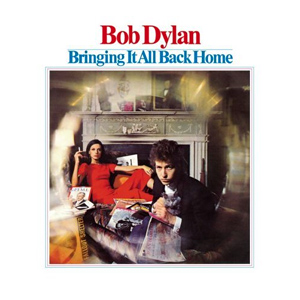
Bringing It All Back Home is the fifth studio album by American singer-songwriter Bob Dylan. It was released in March 1965 by Columbia Records. In a major transition from his earlier sound, it was Dylan's first album to incorporate electric instrumentation, which caused controversy and divided many in the contemporary folk scene.

Samuel John "Lightnin" Hopkins was an American country blues singer, songwriter, guitarist and occasional pianist from Centerville, Texas. In 2010, Rolling Stone magazine ranked him No. 71 on its list of the 100 greatest guitarists of all time.

The Waterboys are a British-Irish folk rock band formed in London in 1983 by Scottish musician and songwriter Mike Scott. The band's membership, past and present, has been composed mainly of musicians from Scotland, Ireland, Wales and England. Mike Scott has remained the only constant member throughout the band's career. They have explored a number of different styles, but their music is mainly a mix of folk music with rock and roll. They dissolved in 1993 when Scott departed to pursue a solo career. The group reformed in 2000, and continue to release albums and to tour worldwide. Scott emphasises a continuity between the Waterboys and his solo work, saying that "To me there's no difference between Mike Scott and the Waterboys; they both mean the same thing. They mean myself and whoever are my current travelling musical companions."

David Albert Alvin is an American singer-songwriter, guitarist and producer. He is a former and founding member of the roots rock band the Blasters. Alvin has recorded and performed as a solo artist since the late 1980s and has been involved in various side projects and collaborations. He has had brief stints as a member of the bands X and the Knitters.

Wheels of Fire is the third album by the British rock band Cream. It was released in the US in June 1968 as a two-disc vinyl LP, with one disc recorded in the studio and the other recorded live. It was released in the UK on August 9. It reached number three in the United Kingdom and number one in the United States, Canada and Australia, becoming the world's first platinum-selling double album. In May 2012, Rolling Stone magazine ranked it at number 205 on its list of the 500 greatest albums of all time. It was voted number 757 in the third edition of Colin Larkin's All Time Top 1000 Albums (2000).

The Raven is the nineteenth solo studio album by American rock musician Lou Reed, released on January 28, 2003 by Sire Records. It is a concept album, recounting the short stories and poems of Edgar Allan Poe through word and song, and was based on his 2000 opera co-written with Robert Wilson, POEtry.

"Folsom Prison Blues" is a song by American singer-songwriter Johnny Cash. Written in 1953, it was first recorded and released as a single in 1955, and later included on his debut studio album Johnny Cash with His Hot and Blue Guitar! (1957), as the album's eleventh track. Borrowing liberally from Gordon Jenkins' 1953 song, "Crescent City Blues", the song combines elements from two popular folk styles, the train song and the prison song, both of which Cash continued to use for the rest of his career. It was one of Cash's signature songs. Additionally, this recording was included on the compilation album All Aboard the Blue Train (1962). In June 2014, Rolling Stone ranked it No. 51 on its list of the 100 greatest country songs of all time.
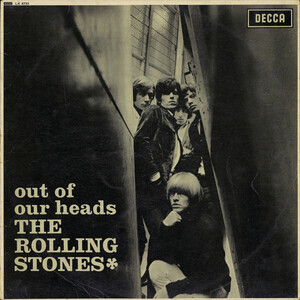
Out of Our Heads is a 1965 album by the English rock band the Rolling Stones, released in two editions with different covers and track listings. In the US, London Records released it on 30 July 1965 as the band's fourth American album, while Decca Records released its UK edition on 24 September 1965 as the third British album.
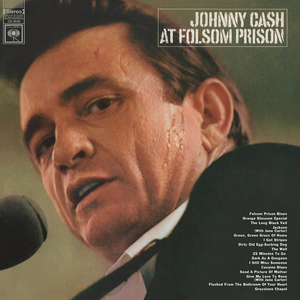
Johnny Cash at Folsom Prison is the first live album by American singer-songwriter Johnny Cash, released on Columbia Records on May 6, 1968. After his 1955 song "Folsom Prison Blues", Cash had been interested in recording a performance at a prison. His idea was put on hold until 1967, when personnel changes at Columbia Records put Bob Johnston in charge of producing Cash's material. Cash had recently controlled his drug abuse problems, and was looking to turn his career around after several years of limited commercial success. Backed by June Carter, Carl Perkins, and the Tennessee Three, Cash performed two shows at Folsom State Prison in California on January 13, 1968. The initial release of the album consists of 15 songs from the first show and two from the second.

Blues is a compilation album of blues songs recorded by American singer/songwriter/musician Jimi Hendrix. Compiled by interim Hendrix producer Alan Douglas, it was released April 26, 1994, by MCA Records. The album contains eleven songs recorded by Hendrix between 1966 and 1970, six of which were previously unreleased. Hendrix wrote seven of the pieces; other writers include Muddy Waters, Booker T. Jones, and Elmore James. Most are demos, jams, and live recordings, which Hendrix may or may not have completed for release.
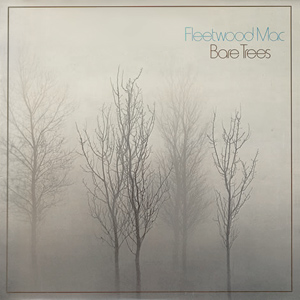
Bare Trees is the sixth studio album by British-American rock band Fleetwood Mac, released in March 1972. It was their last album to feature Danny Kirwan, who was fired during the album's supporting tour. In the wake of the band's success in the mid-1970s, Bare Trees peaked at number 70 on US Billboard Top LPs & Tape chart. The album was certified platinum by the Recording Industry Association of America (RIAA) in 1988.
"Live with Me" is a song by the Rolling Stones from their album Let It Bleed, released in December 1969. It was the first song recorded with the band's new guitarist Mick Taylor, who joined the band in June 1969, although the first record the band released with Taylor was the single version of Honky Tonk Women. Taylor later described the recording of "Live with Me" as "kind of the start of that particular era for the Stones, where Keith and I traded licks."
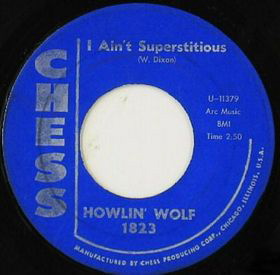
"I Ain't Superstitious" is a song written by bluesman Willie Dixon and first recorded by Howlin' Wolf in 1961. It recounts various superstitions, including that of a black cat crossing the pathway. The song has been recorded by a number of artists, including Jeff Beck, whose blues rock adaptation in 1968 was named one of Rolling Stone magazine's "100 Greatest Guitar Songs of All Time".

Rainbow Bridge is a compilation album by American rock musician Jimi Hendrix. It was the second posthumous album release by his official record company and is mostly composed of recordings Hendrix made in 1969 and 1970 after the breakup of the Jimi Hendrix Experience. Despite the cover photo and subtitle Original Motion Picture Sound Track, it does not contain any songs recorded during his concert appearance for the 1971 film Rainbow Bridge.
Iceburn, known later as the Iceburn Collective, was a musical group formed in 1991 in Salt Lake City, Utah, US, by guitarist/vocalist/composer Gentry Densley, the sole constant member through multiple personnel changes. They were known for their unique style that combined elements of jazz, heavy metal, punk, and classical music. Releasing albums on Revelation Records and Victory Records, Iceburn achieved little mainstream attention, but earned critical praise for their unusual music.

The King Blues are a British punk rock band from London credited for fusing punk and hip hop together with influences from ska and spoken word. Tariq Ali described the band's sounds as "rough, radical music that should unsettle the rulers of this country. A new generation of musicians are challenging war-monger politicians and their courtiers". Influences include Public Enemy, The Clash and The Specials. Lead singer Jonny "Itch" Fox describes the band's sound as 'rebel street music.'

"Look on Yonder Wall" is a blues song first recorded in 1945 by James "Beale Street" Clark. Clark, also known as "Memphis Jimmy", was a blues pianist from Memphis, Tennessee. During the 1940s, he appeared on recordings by Jazz Gillum, Red Nelson, and an early Muddy Waters session, as well as several singles in his own name.

Songs of Innocence and Experience is an album by American beat poet and writer Allen Ginsberg, recorded in 1969. For the recording, Ginsberg sang pieces from 18th-century English poet William Blake's illustrated poetry collection of the same name and set them to a folk-based instrumental idiom, featuring simple melodies and accompaniment performed with a host of jazz musicians. Among the album's contributors were trumpeter Don Cherry, arranger/pianist Bob Dorough, multi-instrumentalist Jon Sholle, drummer Elvin Jones, and Peter Orlovsky – Ginsberg's life-partner and fellow poet – who contributed vocals and helped produce the recording with British underground writer Barry Miles.

















